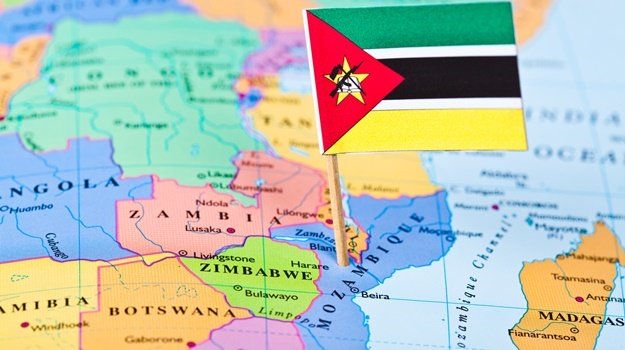

A jihadist group that assaulted two towns in northern Mozambique this week has released a video claiming the attacks, its first official communication in over two years of activity in the gas-rich area.
Insurgents descended on Mocimboa da Praia, a town in Cabo Delgado province on Monday, ransacking government buildings and hoisting their flag before retreating.
A similar attack was launched on Wednesday in the nearby town of Quissanga, where assailants destroyed police headquarters.
A video making the rounds on social media on Thursday showed men dressed in Mozambican army uniforms addressing Quissanga from the district governor’s residence.
If “you who are watching us out there, we are calling on you to come here to fight under this flag,” said one man in Portuguese, wielding a kalashnikov and a black-and-white flag with Arabic inscriptions on it.
“We are not fighting for wealth, we only want Islamic law,” he continued.
African history expert Eric Morier-Genoud said he considered the video to be genuine and recognised the speaker from an older clip.
“This video is an echo of another circulated in January 2018 where the same speaker was calling for Mozambicans to join the fight for Sharia rule,” said Morier-Genoud, a senior lecturer at Queen’s University Belfast told AFP.
He warned that the footage showed “continuity” in the group’s “programme and leadership”.
“It is not a sophisticated message and programme,” he explained. “But it is bluntly clear: Sharia rule and an Islamic State.”
Cabo Delgado has been battered by jihadist attacks since October 2017, although the identity of the assailants remains unclear.
Locals call the group al-Shabaab, but it is not linked to the group of the same name operating in Somalia.
The shadowy organisation has killed more than 900 people, according to the Armed Conflict Location & Event Data Project – causing hundreds of thousands to flee and raising concern among energy giants operating in the region.
The insurgents had so far mainly targeted remote villages but the latest attacks suggest they are building momentum, as government troops have failed to restore order.
“The movement has gained strength, but not expanded,” said Morier-Genoud. “It has some support in some areas. It has connected to ISIS (Islamic State), but remains very local for the time being.”
The Islamic State Central Africa Province (ISCAP), affiliated with the so-called Islamic State group, claimed the Mocimboa attack earlier this week.
